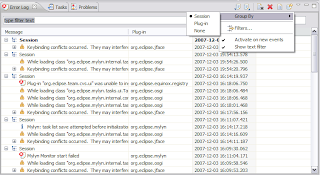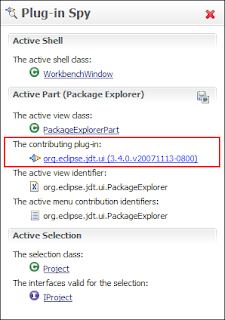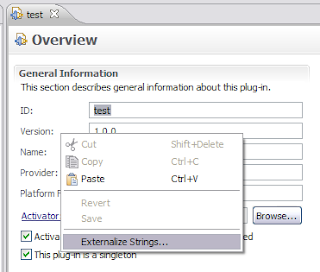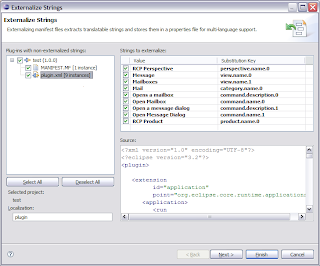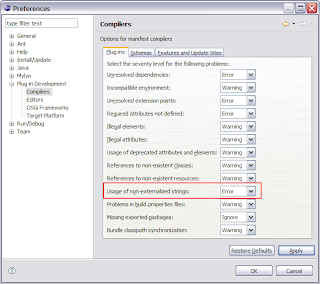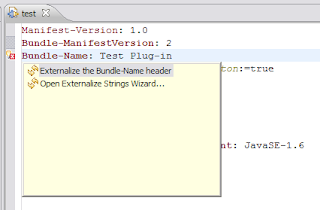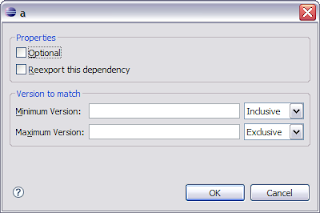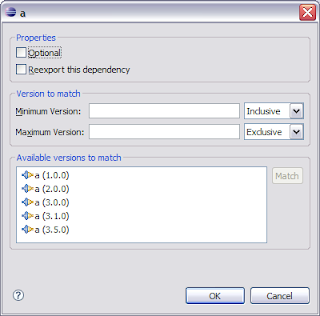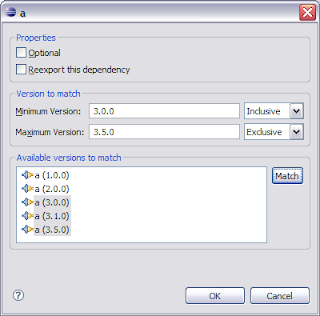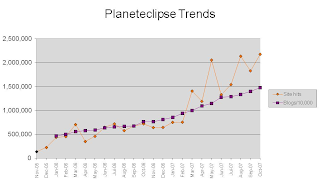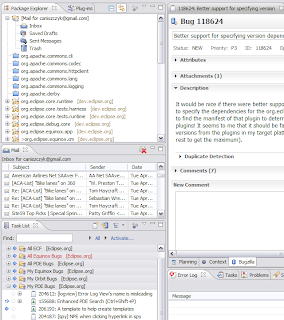In Eclipse 3.4, source will be shipped as individual bundles instead of the old way via the org.eclipse.pde.core.source extension point. So now you will see many bundles with the format of <id>.source floating in your Eclipse installation. What’s nice about this is that now source is just shipped as another corresponding bundle so there’s more flexibility there. If you peer inside these bundles, you’ll discover a new manifest header:
Eclipse-SourceBundle: org.eclipse.pde.core;version="3.4.0";roots:="ant_tasks/pde-antsrc,."
This header simply states what bundle you’re providing source for (ie., org.eclipse.pde.core) and where the source roots are within the bundle.
If you need more information, check out this wiki entry.
This new source format will make its debut in Eclipse 3.4M4.


